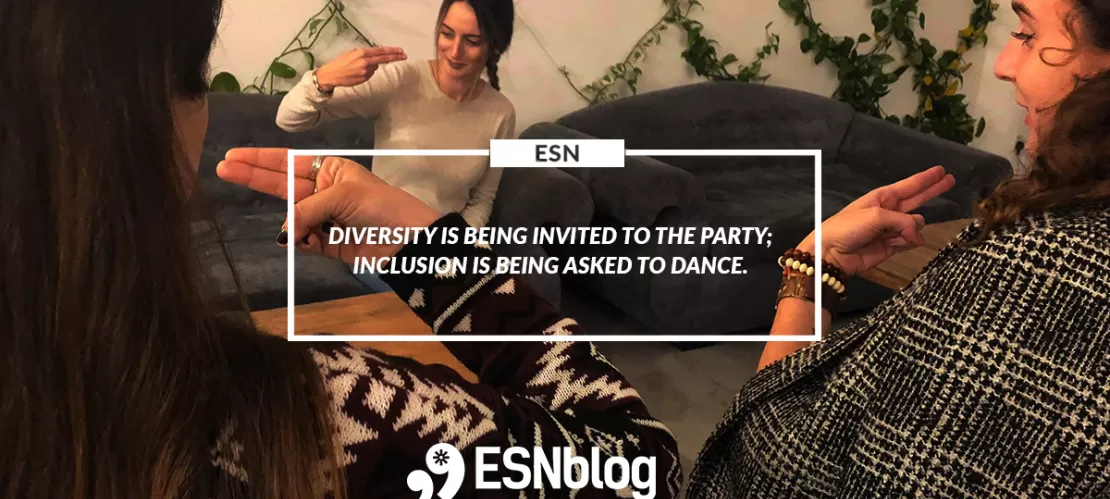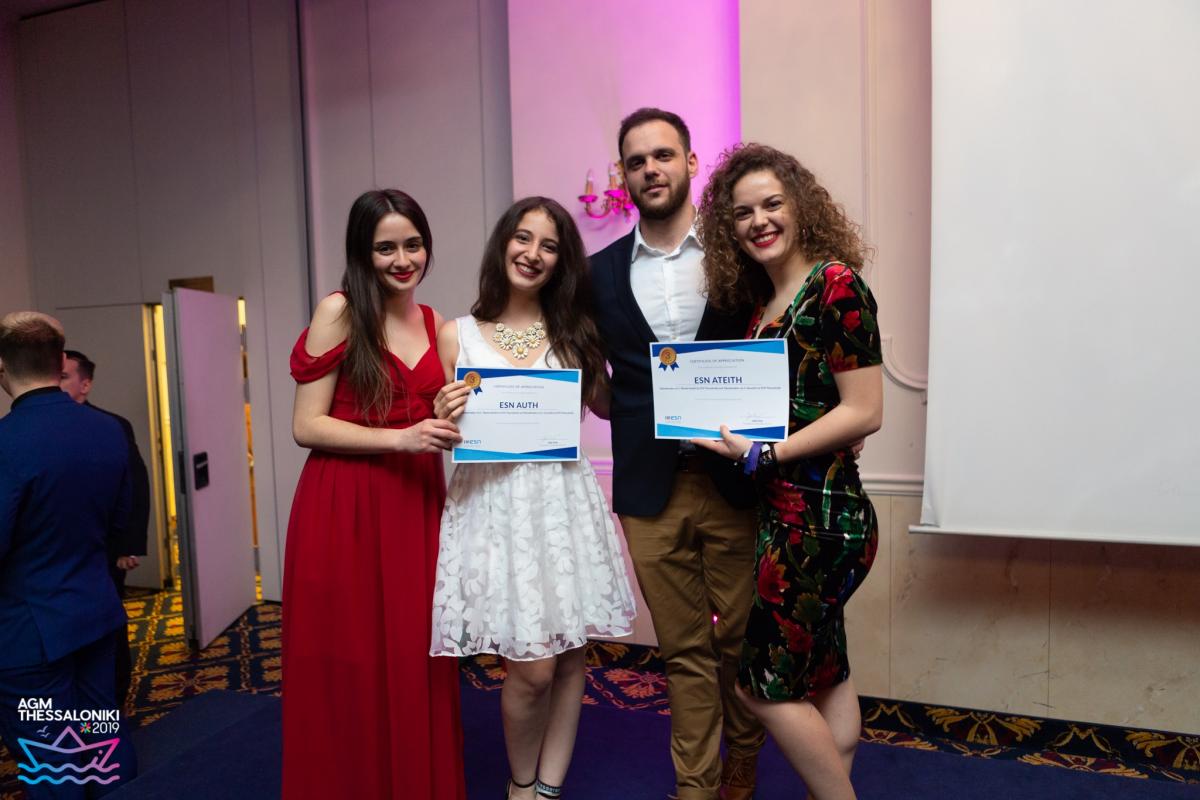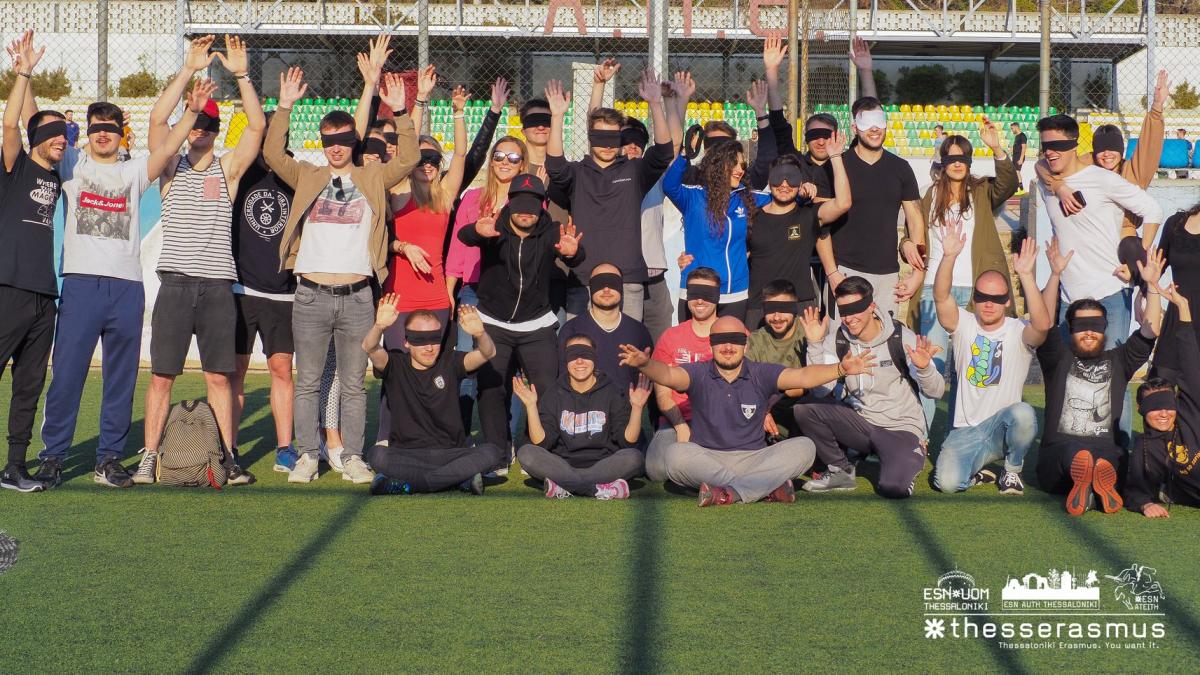
As a psychology student, problems and injustices were always interesting to me. For example, I thought that the issue of inequality, such as there were fewer opportunities for people with disabilities, is important. The fact that, in the 21st century, it is still difficult for some of them to walk safely in the city, to find work or form part of a peer group is inconceivable. This is why ESN stole my heart. Social inclusion constitutes an integral part of the network’s causes, a crucial part that we often forget, though we shouldn’t. “We are less when we don’t include everyone'' says Stuart Milk, a human rights activist, and I couldn’t agree more.
And, of course, ESN, as a system that respects itself, understood the weight of this topic and created a whole programme to fight back! To answer the failings of our society, the programme aims to widen participation and raise awareness about special needs (medical, mental or psychological) and to promote inclusion for everyone, despite the challenges they may face. Naturally, this also means trying to make it possible for them to go on an Erasmus, informing and encouraging them, and demanding specific things from the sending and receiving universities. The team which organises these types of activities also often works with the team who is focused on social engagement and volunteering to fight against injustices and shortfalls of society. Together, we create the dream team of Social Inclusion!
I had the position of a local programme coordinator in my section, ESN AUTH, for one year.

With my team, we tried to map parts of the universities in Thessaloniki using MappED!, an application of ESN International that helps classify installations and streets depending on their accessibility. So, we checked if the universities had ramps, elevators big enough for wheelchairs, special buttons in them, sound systems and other indispensable tools for students that might need them - a job that the authorities should have already done -hands up for the person that invented volunteering!-.
Also, we organised events like a dinner in the dark, paralympic games, meet your senses, information days about the matter, sign language lessons, and discussion rounds. Their common goal was to put the Erasmus students, and the rest of the participants, in the shoes of people with disabilities. How would it feel not to be able to see or hear? Which difficulties would I face? What kind of solutions could I apply to make my life easier? How can I say “thank you” in sign language? How can I help someone with a mental illness? How can I enable a person with visual impairment to cross the street?
A highlight was when we, the Social Inclusion Team of ESN Thessaloniki, won the third award for “Event with biggest social impact” at the Annual General Meeting of ESN in 2019! It was funny because this event was invented by my team and me, on my couch. Little did we know! We just had this idea that we wanted to be able to talk about taboo topics with liberty, one of them being disability. So we decided to organise a Taboo-Breaker. The point of the event was to observe the stereotypes we have about certain groups, question them through games and change them.

I was so happy to see that Erasmus students were interested in this kind of topic. Maybe not all of them, maybe not always. But at least some of them were, and this is precious and kept us going! The truth is that every coordinator of Social Inclusion has spent some events waiting for people to show up. But at the end of the day, the only thing you remember is this boy who taught you to say “I love you” in sign language. Or this girl that said “thank you for creating a space for us to be able to talk about these things. I was fighting with depression for so long. It’s good to have the possibility to be heard by people who want to listen”. Or the fun you had playing football with your eyes closed.
At the end of the day, the only thing you remember is that, even though we’re different, we are all equal and worthy. As Martin Luther King put it, “We may have all come on different ships, but we’re in the same boat now”.

